Back in July, we told you about how the Ikurraq Food Bank in Rankin Inlet, Nunavut demonstrated its ability to be nimble and creative by turning donated P.E.I. potatoes into delicious tuktu poutine. But the Ikurraq Food Bank isn’t the only organization in the network of over 4,750 hunger relief organizations supported by Food Banks Canada to have benefited.
In response to the temporary ban on the export of P.E.I. potatoes to the U.S. that lasted from November to early April, Food Banks Canada worked with the Canadian federal government to purchase and distribute over 4 million pounds of Island potatoes to provincial associations and food banks across the country.
Through Food Banks Canada’s National Food Sharing System, more than 85 truckloads of nutritious P.E.I. potatoes have been distributed to 29 delivery locations — including remote communities in the Yukon, the Northwest Territories, and Northern Manitoba — at a time when hunger and food insecurity are on the rise.
“This bounty of fresh food is particularly valued during the current time of rapidly rising food, housing and gasoline prices, which is challenging so many families and seniors and underemployed persons,” said Kevin Smith of the Central Okanagan Food Bank, which received 22,000 bags of P.E.I. potatoes between February and March.
Alex Counsell of the Loaves & Fishes Food Bank in Nanaimo, B.C., agreed: “With food prices increasing so much, potatoes are a great option and the food banks in the Vancouver Island region seem interested in them.”
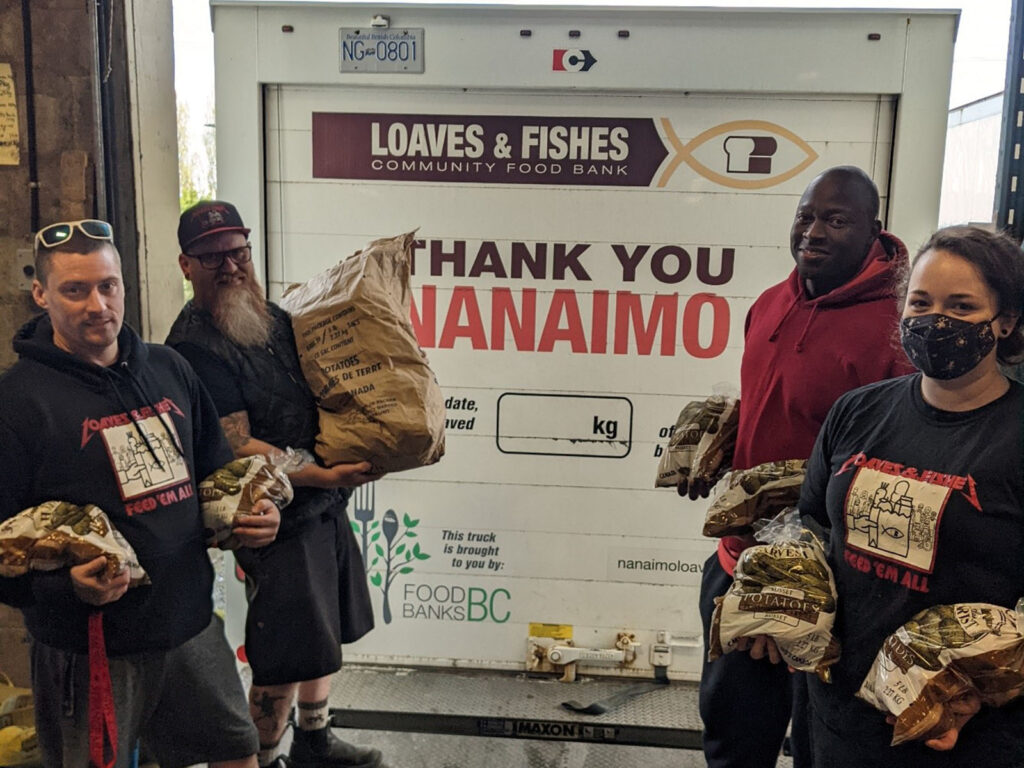
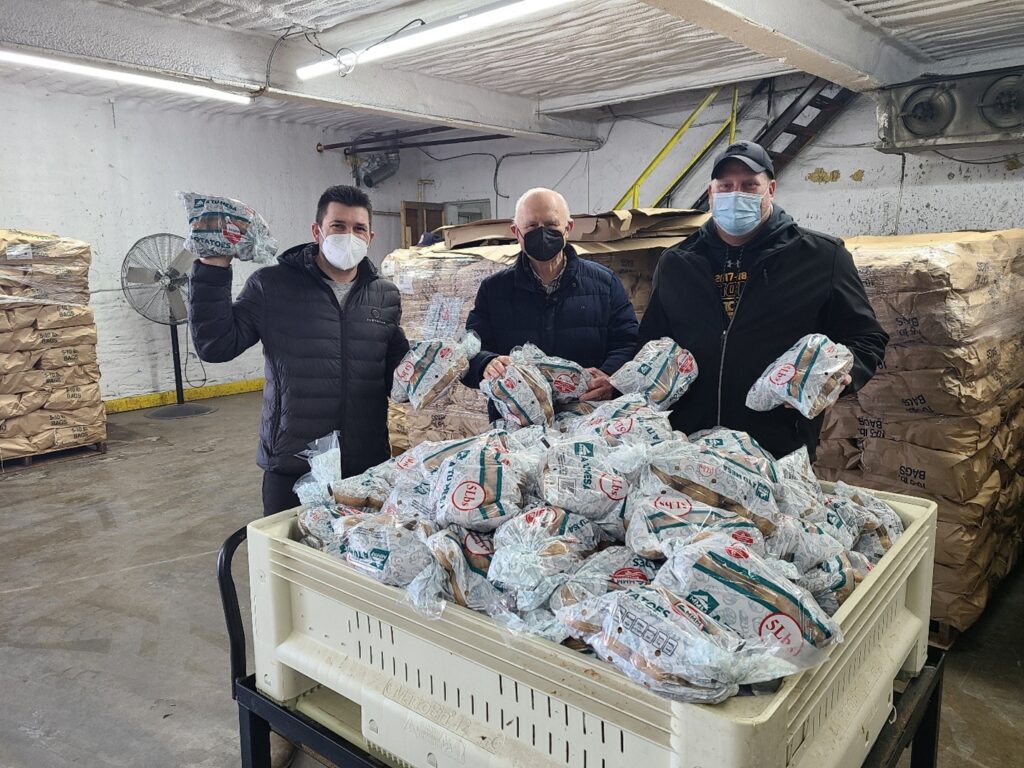
POTATOES! POTATOES! POTATOES!
In March, while Food Banks Canada’s National Food Sharing System was working to distribute P.E.I. potatoes from coast to coast to coast, the CBC published an article featuring our CEO, Kirstin Beardsley, that focused on how food banks were ‘overjoyed’ to receive the Island spuds.
The testimonials provided by food banks from the national network tell a similar story.
When Food Banks Canada shipped hundreds of thousands of pounds of P.E.I. potatoes to the UHC – Hub of Opportunities in Windsor, Ont., the produce was not only distributed in food hampers to vulnerable people living throughout Windsor-Essex County, but also used to make healthy, nutritious soup for food-insecure individuals across Ontario as part of the UHC’s Farm to Food program.
READ MORE: How food banks helped avoid over 100 tons of CO2 equivalent greenhouse gas emissions
“The large donation of potatoes from Food Banks Canada has been a tremendous help,” said Mackenzie Adams of the UHC, which will receive a whopping 900,000 pounds of P.E.I. potatoes by the end of the program. “Potatoes are high in protein and fibre, keep individuals full for extended amounts of time, and taste great in just about anything.”
In Moncton, N.B., volunteers celebrated the versatility of the root vegetable by transforming P.E.I. potatoes into mouth-watering meals for their clients.
“One of our member agencies had volunteers come in to peel their large donation so they could make the potatoes into soups, chowders and hashbrowns,” said Carrie Delaney of Food Depot NB. “The versatility of the potato is endless!”
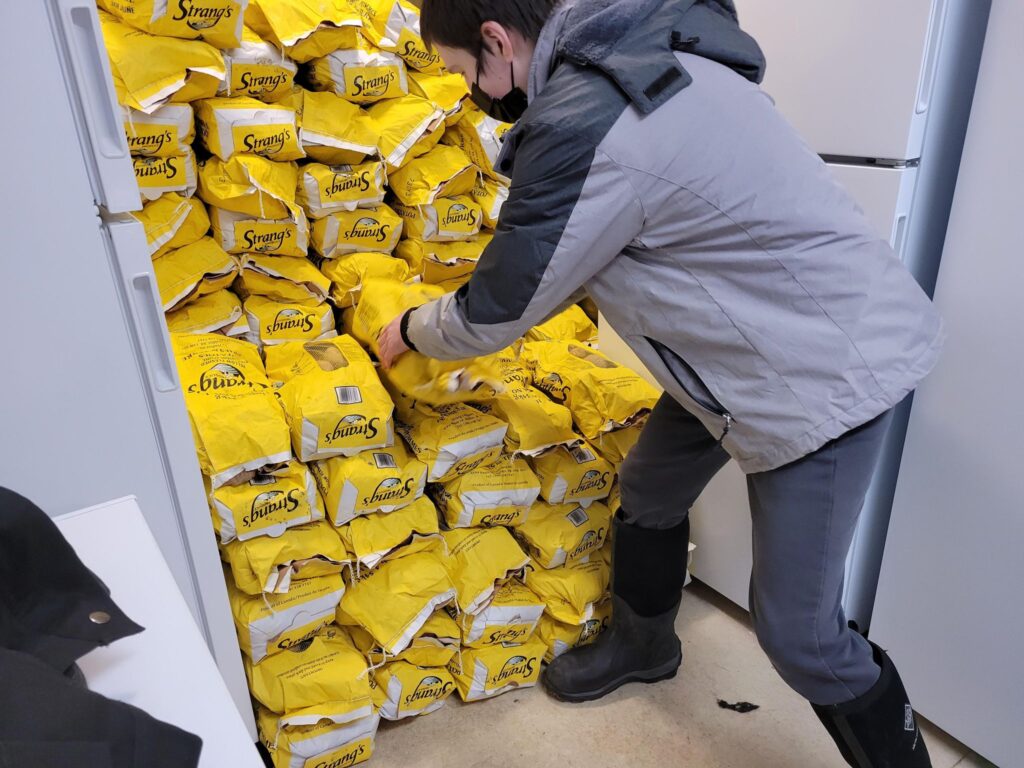
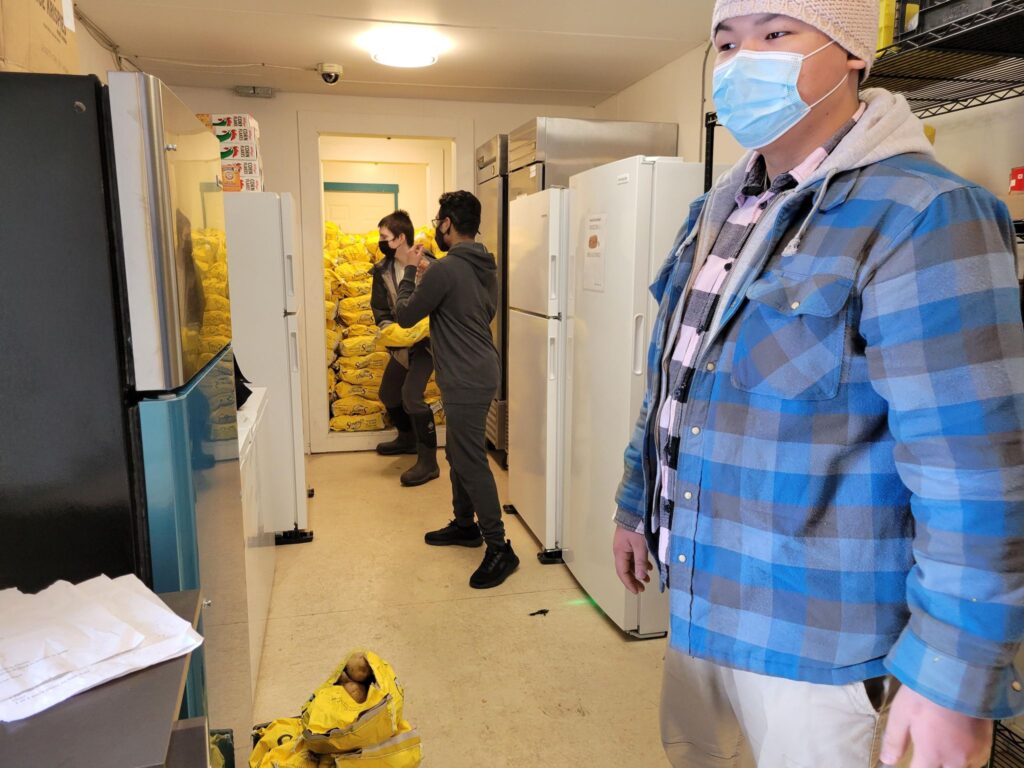
Community members in Inuvik even braved below-freezing temperatures to help unload six pallets of potatoes after they were trucked from P.E.I. to Manitoba and then flown to the Northwest Territories through Food Banks Canada’s National Food Sharing System — a distance of more than 7,700 km (about twice the width of the United States).
“We had a procession line going on at the food bank yesterday to get the pallets of potatoes in the building,” Inuvik Food Bank President Angela McInnes reported at the end of March. “We were delivering potatoes in -31 degree weather last night. Folks love the potatoes. Today they are out delivering again.”
PHOTO GALLERY: SproutING smileS
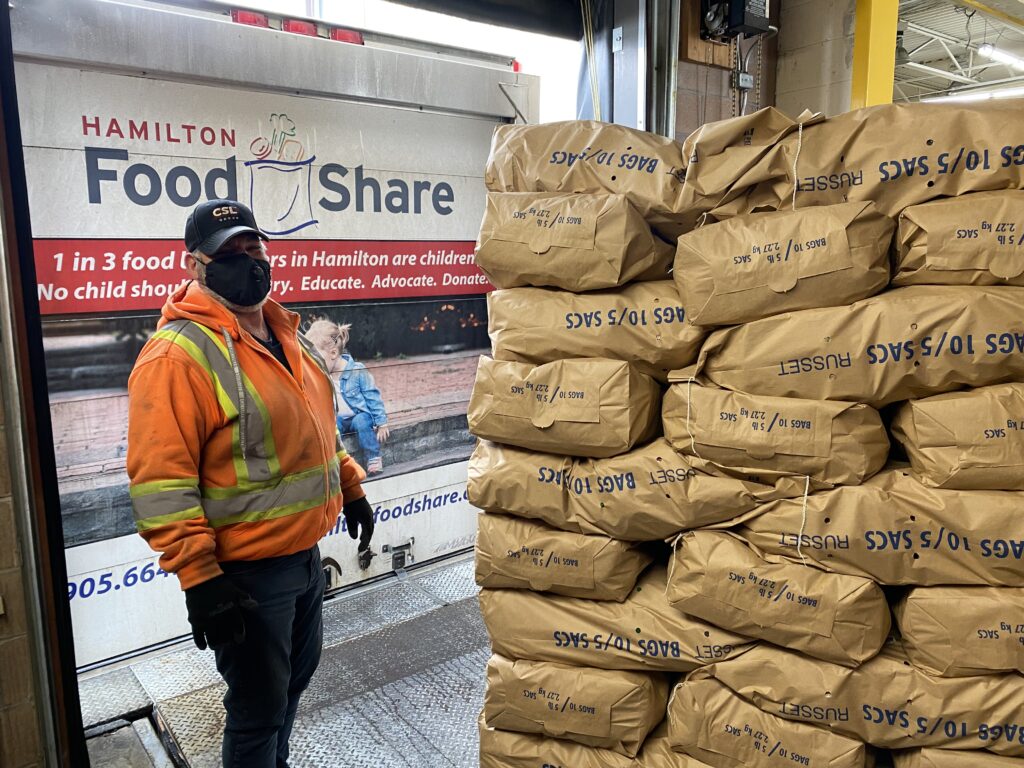
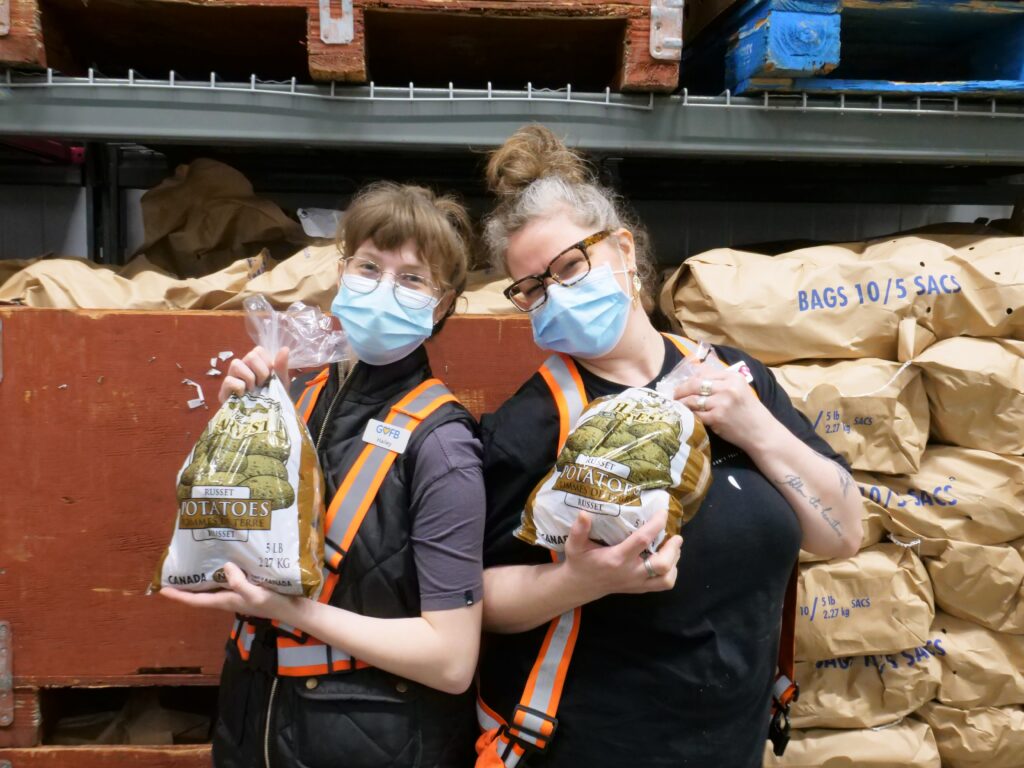

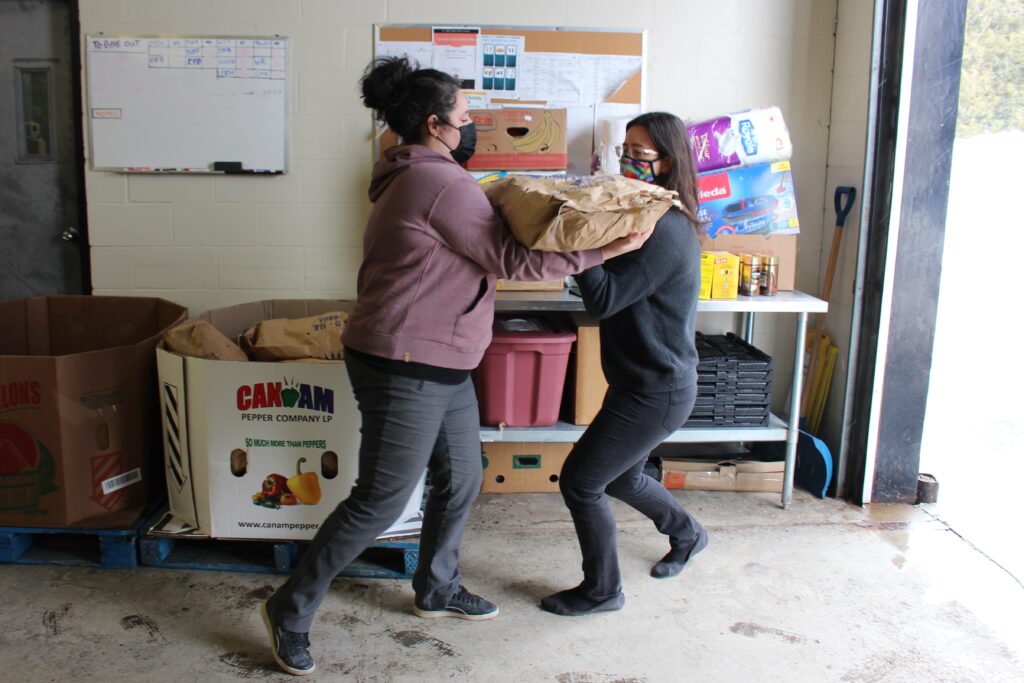

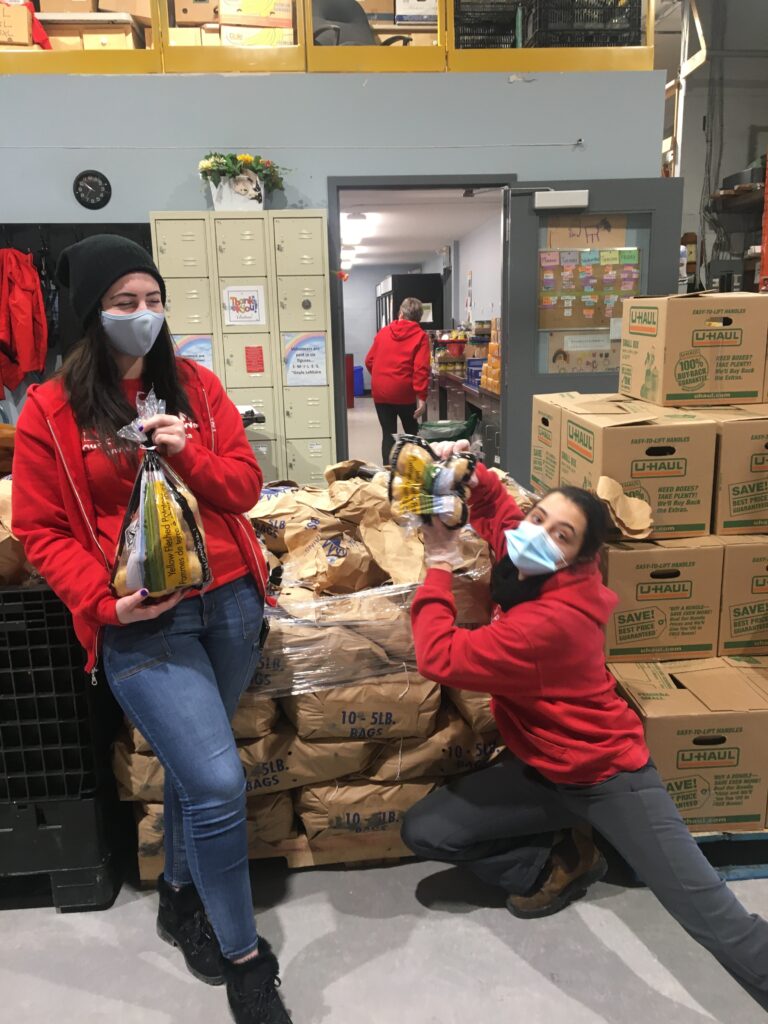
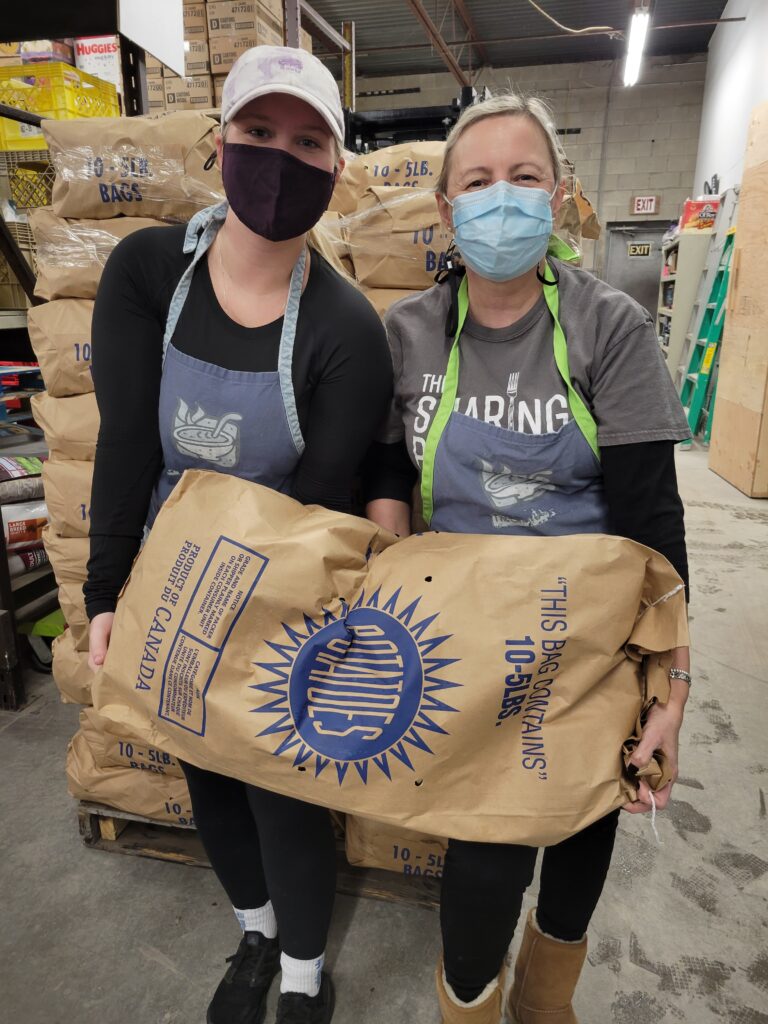
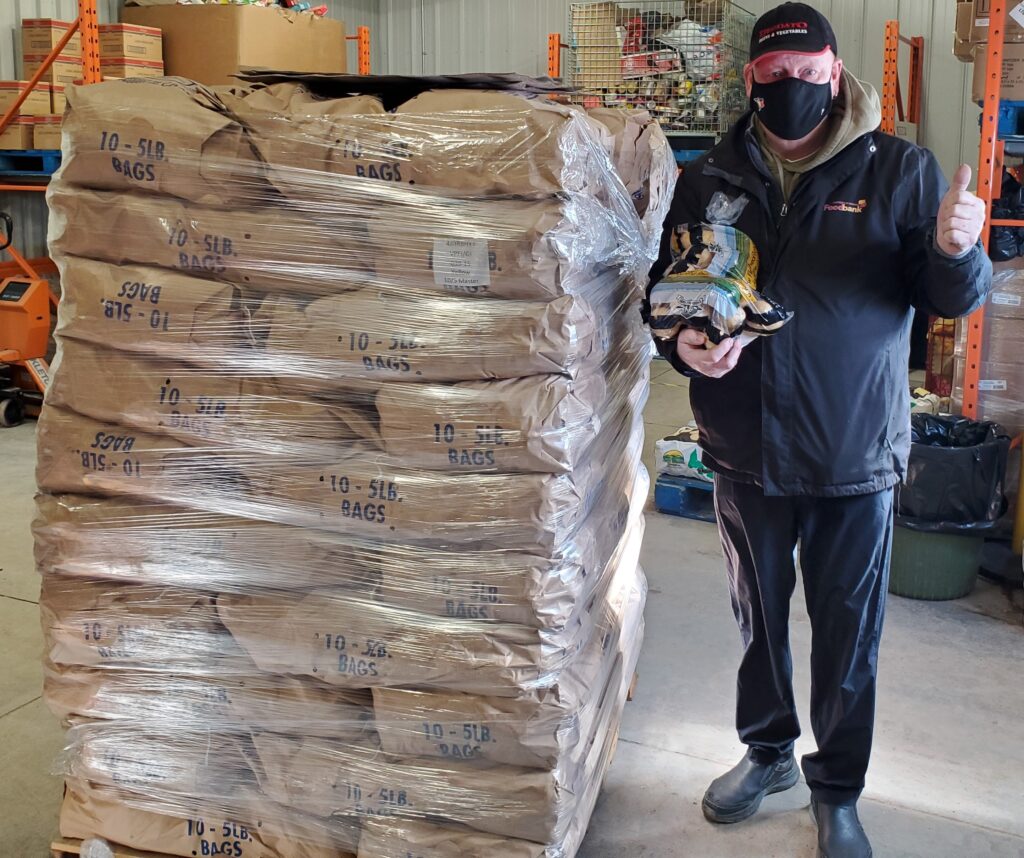
Building a national network to share food across the country
Much of our work at Food Banks Canada involves partnering with agriculture-based commodity groups, producers, manufacturers and corporate donors to secure and distribute large-scale donations of food.
Through Food Banks Canada’s National Food Sharing System, which encompasses the Retail Food Program, Food Banks Canada safely shares over 20 million pounds of quality food with the food banking network each year.